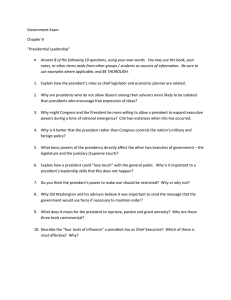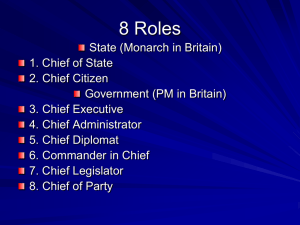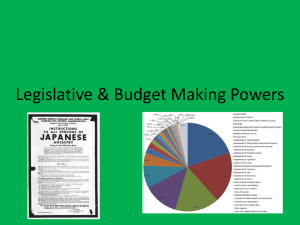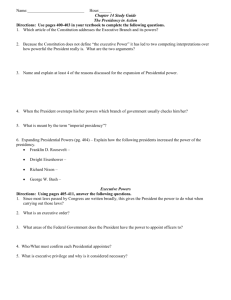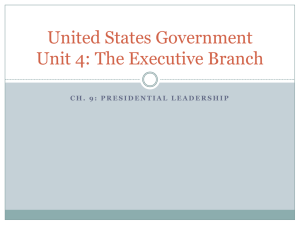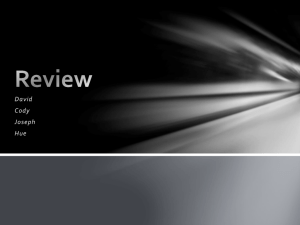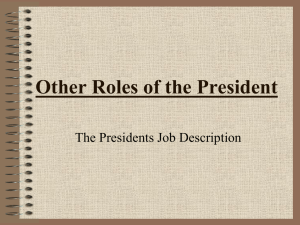The Executive Branch
advertisement
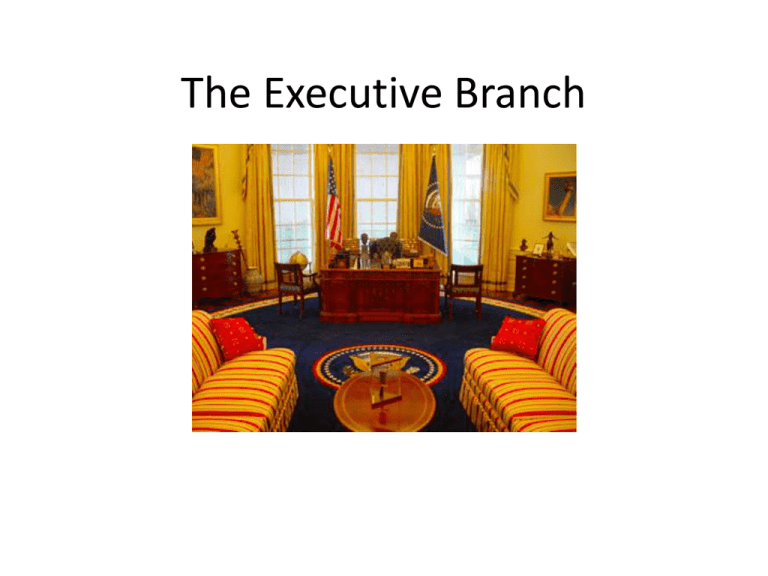
The Executive Branch Question: Why did the framers of the Constitution add an executive to the American system of government? I. Formal Powers A) Foreign Policy 1) Diplomatic -Treaties -Executive Agreements -Recognition Power 2) Military a. Commander-in-Chief Clause has been used to justify presidential powers not enumerated in the Constitution. b. Declaration of War V. Authorization to use force B. Domestic Powers 1)Appointment Power 2) Veto Power 3) Pardon Power 4) Power to inform convene Congress II. Informal Powers A) Power of Persuasion 1) Related to public opinion 2) Greatest during Honeymoon period. 3) Use Bully Pulpit to get issues on the agenda. 4) Good economic news and successful military campaigns will boost presidents approval numbers III. Inherent Powers A. Executive Orders B. Prosecutorial Discretion (To enforce or not to enforce the law, that is the question) IV. The Paradox A) The presidency is often portrayed as the most important and powerful person in the world and we expect our presidents to do great things….. However Americans do not like a concentration of power in any office including the executive. B) The power of the president is limited by -Checks and Balances (veto override, legislative oversight, judicial review) -Separation of Powers (Congress is given legislative power) -Federalism V. Roles of the President A. Chief of State -ceremonial head of government B. Chief Executive -execute the law and organize the executive office. C. Chief Legislator 1. Modern presidents have taken the lead in legislating and now send proposals to Congress. a. honeymoon period b. use of bully pulpit c. Can use the threat of a veto to get legislation that is favorable to him or her. d. In the 1990s Congress attempted to give the President a line-item veto, but the Supreme Court ruled in unconstitutional. -was designed to limit pork barrel spending. D. Party Leader A. The President is the only nationally-elected party leader. All other positions, such as Speaker of the House are chosen by the individual parties. D. Chief Diplomat A. President takes the lead role in American defense and foreign policy. E. Commander-In-Chief Which Role?



